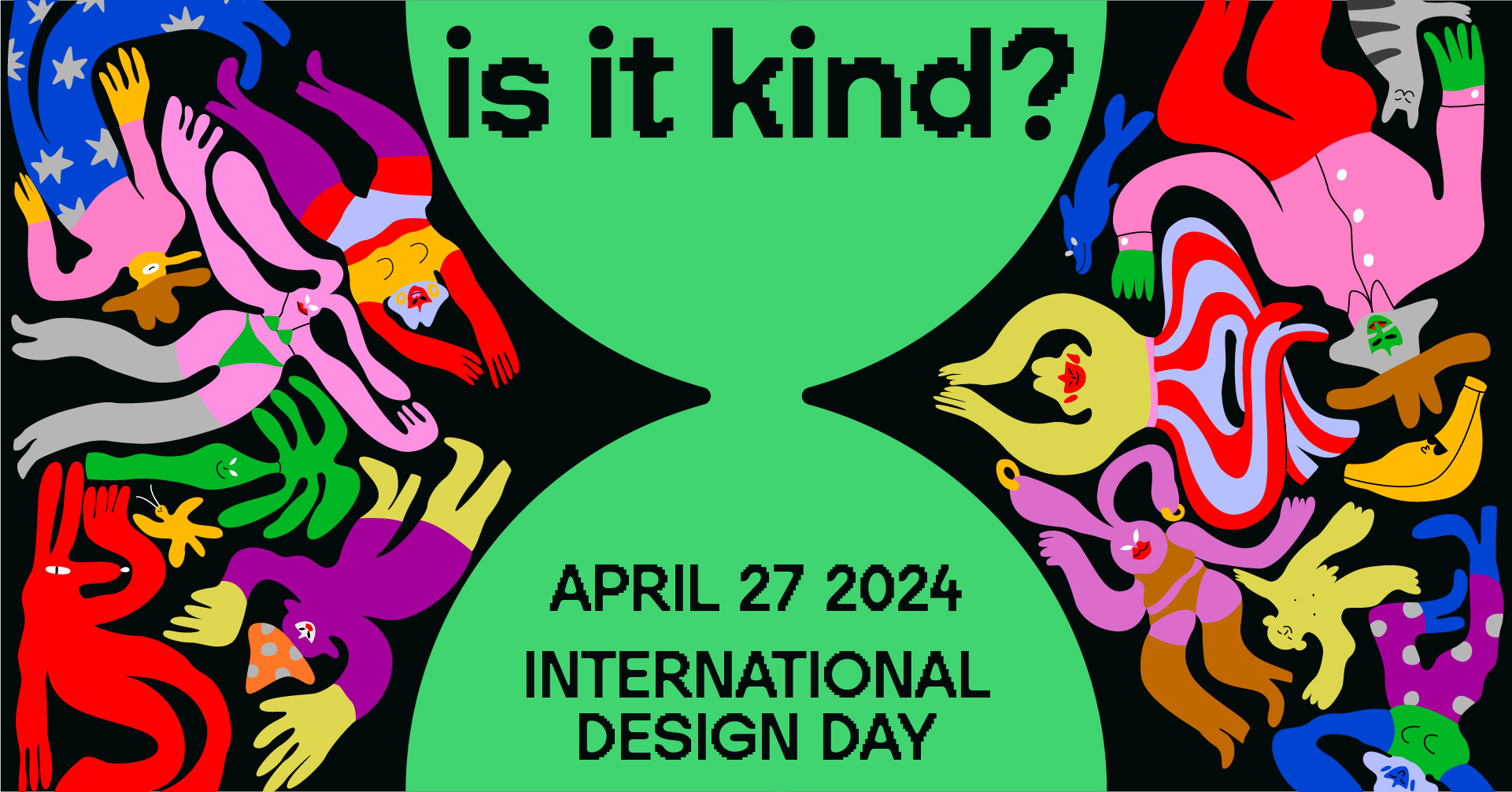2022 PM recap
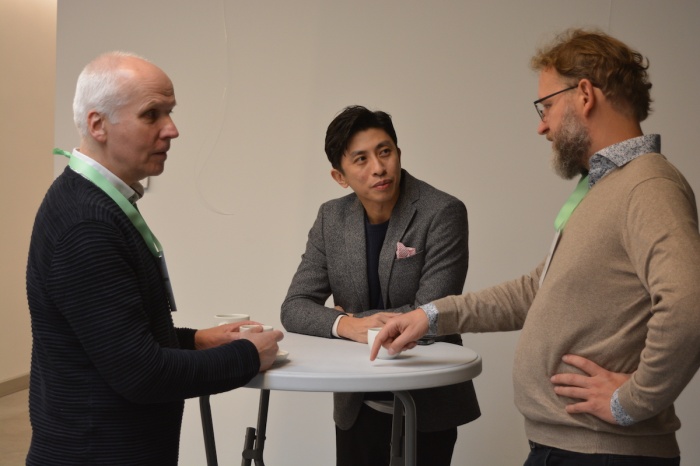
01.11.2022 ICoD news
Design is a profoundly optimistic profession. We imagine better futures and build them, through small and large gestures. At the 2022 Platform Meeting, 'Design is possibility', the goal was to explore the endless potential design has to adapt to a changing world.

(From L to R): ICoD Members Dorthy Van't Riet of the African Institute of the Interior Design Professions (IID) and Zeynep Tonguç of the Turkish Graphic Designers Association (GMK)
On 15 October 2022, representatives from 12 Member organisations from 11 countries, including South Africa, Singapore, Australia, and Canada, gathered in Kaunas (Lithuania) for the Council's first in-person Platform Meeting since the global Covid pandemic. Introduced in 2014, the 'Platform Meetings' are a place for ICoD Members to gather to explore common challenges and action for change in a participative format. Unlike the formal Assembly, the Platform format was created for a more in-depth discussion on current issues in design practice and how they impact professional associations, the teaching of design and, ultimately, the role of the Council in facilitating these exchanges.
At Platform Meetings, Educational, Professional and Promotional Members work through current topics of design professionalism traversing the regions and categories. Under the theme 'Design is possibility' the TOPICS explored included: SELF-REFLECTION, TRANSITION AND CHANGE, REFRAMING SUSTAINABILITY and DESIGN IS FOR PEOPLE.
2022 THEME: DESIGN IS POSSIBILITY
The challenges presented by not only the pandemic, but climate change, population growth, and technological disruptions will further confront our societies in years to come. But we see immense potential in these complicated times. Design is well-suited to approach complex problems. As a professional community it is up to us to start positioning design and designers to confront these issues. Professional associations should be aiming to be reaching out of their silos and finding bridges to collaborate with government, city planners, industry as well as other professionals. Educational institutions need to prepare their students to see their role more holistically. Designers have a responsibility beyond their clients, to consider the well-being of humanity.
"Big hairy" problems deserve audacious solutions. Disruption is coming and designers can be a positive influence in this or be swept away in the changes that will accompany it. Our increasingly interconnected global community will need to rely on the expertise and imagination of those who are building a new kind of future, and we posit that designers can and should be a driving force in this. Design is a profoundly optimistic profession. We imagine better futures and build them, through small and large gestures.
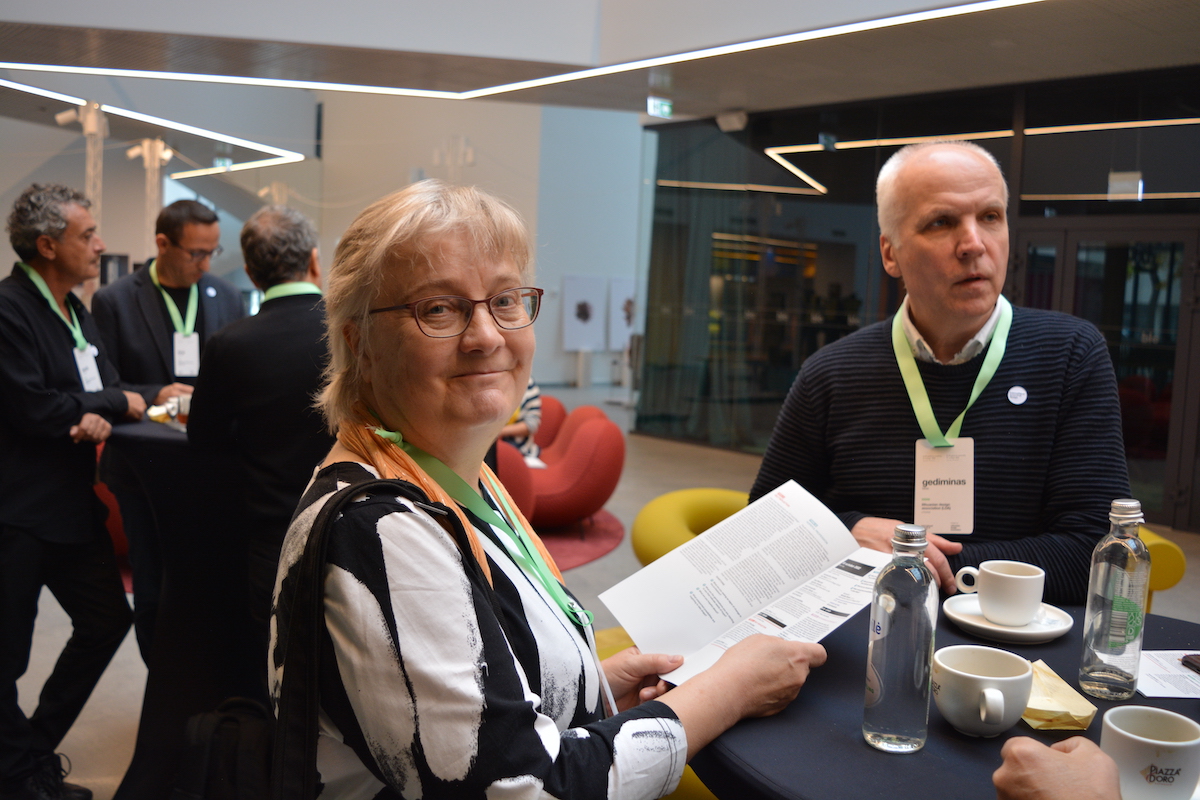 (From L to R): ICoD Members Nikula Silja of the University of Lapland and Gediminas Lašas of the Lithuanian Design Association (LDA)
(From L to R): ICoD Members Nikula Silja of the University of Lapland and Gediminas Lašas of the Lithuanian Design Association (LDA)
TOPIC 01 SELF REFLECTION
When Victor Papanek said in his 1971 book Design for the Real World that “there are professions more harmful than industrial design, but only a very few of them” he was confronting designers with the environmental impact of their day-to-day choices. A small choice, repeated in a production run of hundreds of thousands, has very tangible impacts. This continues to be true today, whether the designer in question is designing clothing, websites, sofas, video games or anything else. We are making choices on behalf of consumers and the smallest details of our choices can have large and unexpected impacts when multiplied. If we go further than the manufacturing component, designers are a key part of another system that has important impacts on culture, consumption, society and the economy: the fabrication of desire. We are part of a consumer system that stimulates wants, creates trends and ‘hype’ around products, lifestyles and even political movements. In its current incarnation, this power of persuasion is mostly used to stimulate sales of endless products. But this need not be the limits of its application. Design can be used to transform the way people think about how they want to live. How they experience change. It can be used to subvert paradigms and offer new and innovative solutions to many of the problems we confront.
As design organisations and institutions, we must not be afraid to discuss, dissect and disagree on what design is, does, and can do. Self- examination is a crucial step in the maturing of any profession. There is nothing like lively debate to resolve our internal contradictions, transform our ideas, and ultimately form a solid basis for looking forward. An exploration of how we understand what we do and how we explain it to others.

TOPIC 02 HOPEFUL PROFESSION
The act of designing is inherently hopeful. Reduced to a fundamental essence, designing is imagining ‘ideal’ futures in order to build them. We strive to make safer, more efficient cars, to devise systems to more clearly transmit information, make more comfortable shoes, more sustainable packaging, etc. But none of this is in a vacuum. The designs we create must balance the needs and effects on individuals and societies. They must balance the aims of the client, the desires of the user, the impacts on other sectors of society, the cultural influences it creates and more. We measure the environmental impact. We reflect on the social impacts of a product’s manufacture, transport, and use. We consider safety. We consider cultural meanings and influences. The Council has long taken the position that design is a profession. We do not mean by this, that it is a means to make a living. An economic transaction is not enough to establish a professional standing. Professionalism is an ideology that asserts greater commitment to doing good work than to economic gain and to the quality rather than the economic efficiency of work. In other words, what differentiates a profession from a ‘job’ is that a professional puts the quality of the work and the professional reputation before the financial incentive. A professional thinks of themselves first and foremost at the service of society, in small and large ways.
Moderated by ICoD Board Member Michelle Renee, the Platform's Roundtable Discussion asked those in the room:
What are you seeing as signs of change in the profession?
What are the germinations you are starting to see that indicate seeds of hope?
What are you hopeful about?
What unexpected possibilities are beginning to take shape?
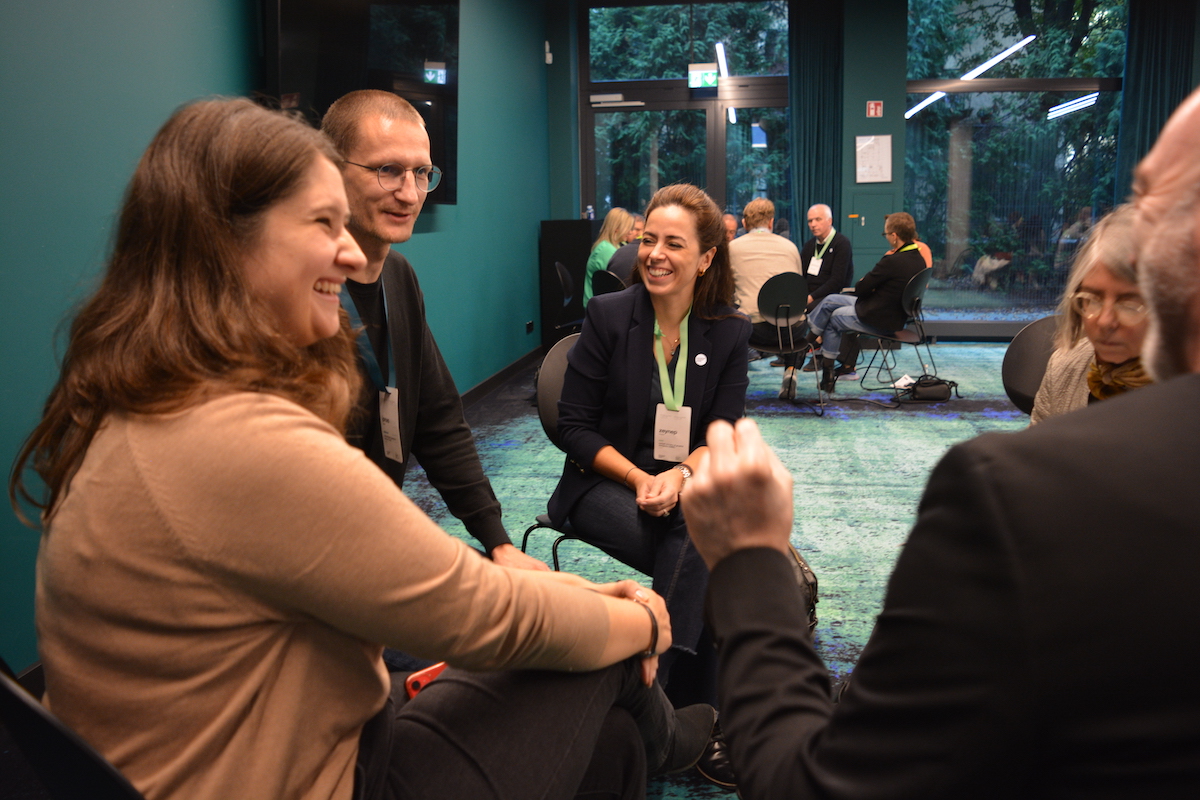 (From L to R): ICoD Member Ieva Ščervianinaitė of the Lithuanian Design Association (LDA), Executive Board Member Jonas Liugaila and Zeynep Tonguç of the Turkish Graphic Designers Association (GMK)
(From L to R): ICoD Member Ieva Ščervianinaitė of the Lithuanian Design Association (LDA), Executive Board Member Jonas Liugaila and Zeynep Tonguç of the Turkish Graphic Designers Association (GMK)
TOPIC 03 REFRAMING SUSTAINABILITY
The narrative around sustainable design seems to be stuck on recyclability, ‘reducing’ impacts and ‘circular design’. We are not against any of these ideas. Anything that can be done to improve now, should be. But we would like to propose that – as a profession – we start to consider more radical aims. Whilst still in a model of excess production and consumption, can we ever really get ahead of the sustainability challenge? We propose that designers need to fundamentally re-frame their role in the economic system. Designers should be starting to think seriously about how to drastically reduce consumption and production (UN SDG 12). Although seemingly counter- intuitive we believe this is not only possible but an opportunity for design to challenge itself and innovate. Designers have a variety of useful skills. Our capacity to make things desirable need not be applied only to produce and sell products that go out of fashion. What if we applied our skills to repackage existing goods? Or to create systems to allow multiple users to share items? What if our contribution is to design entirely new ways of thinking about consumption altogether?
Communications Officer Alisha Piercy moderated a session with Philipp Pattberg, professor of transnational environmental governance and policy at the Institute for Environmental Studies, VU Amsterdam, with interventions from Director General, Ana Masut.
The video of the Panel session: REFRAMING SUSTAINABILITY can be watched via our YouTube channel.
TOPIC 04 DESIGN IS FOR PEOPLE
So much of what the common person knows of design is not to their benefit. The term ‘user-centered design’ has become code for understanding the user’s wants and faults so well that the designer can use this to manipulate them into outcomes that actually benefit a third party In the tech world, UI/UX design has become so good at manipulating users into outcomes, that whistleblowers have come out against these practices, creating the beginning of tech ethics. The advertising world has similar talents and ethical grey areas. This is an issue in most all types of design. We are focused on making products or services that excite the user whom we are learning about with alarming accuracy. While this knowledge makes the products ‘seamless’ ‘easy’ and ‘addictive,’ it is not actually for the benefit of the user. It is inherently manipulative and unethical. As a consequence, our profession is starting to suffer from an erosion of public trust. Let us stop thinking of the user of design as a consumer, to be manipulated into buying something or behave in ways that benefit a corporate structure. Instead, let’s start imagining the end user as a citizen of the world benefiting from ‘good’ design to increase their wellness and our societies’ capacity to thrive.
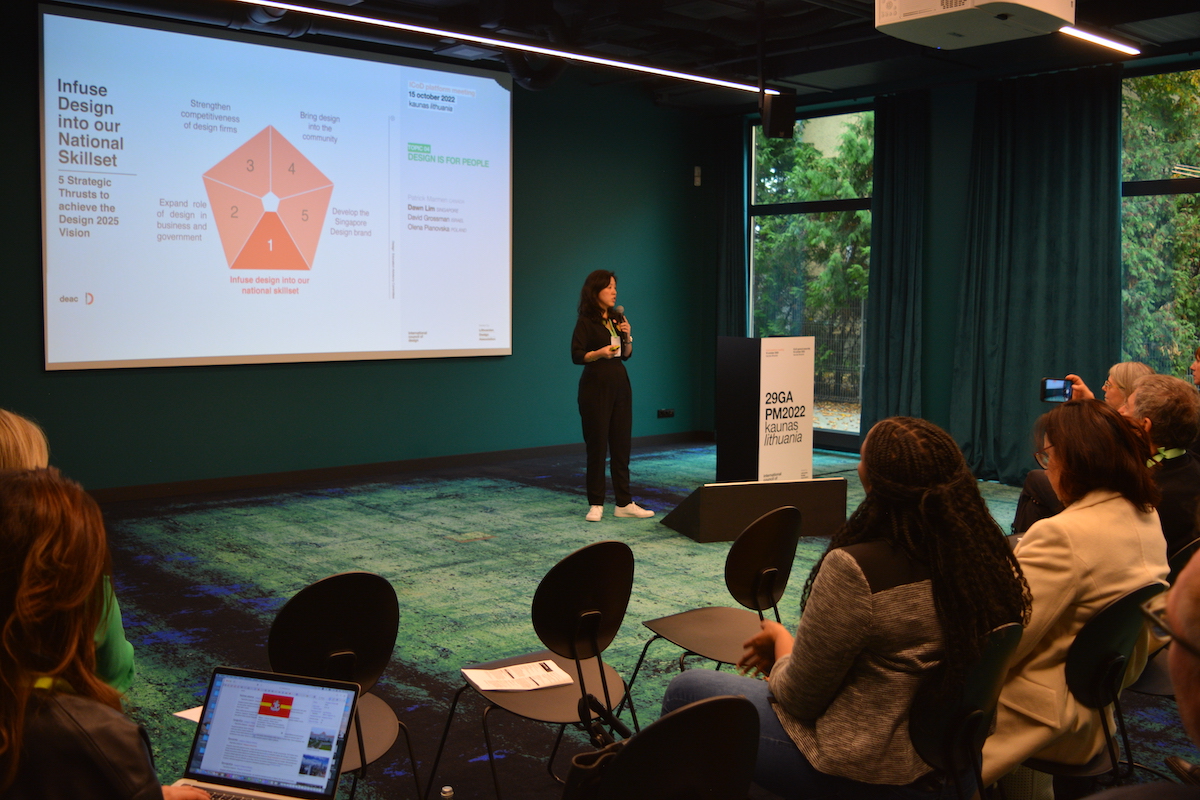 Dawn Lim of ICoD Member the DesignSingapore Council presented the Design 2050 Initiative
Dawn Lim of ICoD Member the DesignSingapore Council presented the Design 2050 Initiative
We look at how design can improve the lives of people through the following lenses:
— How cities can use design to increase the quality of life for their citizens
— How the Council is starting to look at the role of design organisations in effecting change in our societies
— How one of our Members has used design (and the design community) to support refugees fleeing war
— How to teach a new cohort of designers to solve problems in the face of increasingly complex issues in the world
Presentations during this TOPIC included a presentation by the Design Commissioner for the City of Montréal, Patrick Marmen, entitled 'Instilling a design culture within the City of
Montréal'. Building on 30 years of municipal actions in design, the City of Montréal adopted in 2019 the Agenda 2030 for Quality and Exemplarity in Design and Architecture, a policy that engaged the City and its partners to use design as as tool to improve the experience of its citizens. The presentation highlighted the scope of this policy through examples of initiatives led by the City’s Design Office.
Dawn Lim, Executive Director of the DesignSingapore Council presented 'Beyond 2050: Reimagining Design Education in Singapore,' showing how Singapore’s first-ever national level Design Education Advisory Committee (DEAC) set a bold 30-year vision that by 2050, Singapore will have developed the next generation of creative thinkers, problem solvers, and a global resilient workforce that will use design to help the nation thrive in the future economy. The Council proposes three recommendations to lay the foundation for an industry-relevant design education by 2050 and beyond.
In, 'Taking ownership of the design discourse' Former Council President David Grossman argues that the term 'design' is as misunderstood as it is ubiquitous. Indiscriminate use of the concept of 'design precludes any acceptance of designers as professionals. To ensure a future in which the potential of design is realised, designers themselves have to exercise control over the design discourse.
In, 'United for Ukraine' Lena Pianovska of the Association of Polish Graphic Designers (STGU) showed us how the design community can come together to help their fellow designers in need. In an impassioned relating of the activities of the last 8 months, Lena described the man activities her association had been able to realise with the help of the Polish and international design community in reaction to the war and refugee crisis.
TOPIC 05 SEEING THE POTENTIAL
The challenges presented by not only the pandemic, but climate change, population growth, and technological disruptions will further challenge society in years to come. We see immense potential in these complicated times. Design is well-suited to approach complex problems. As a professional community it is for us to begin positioning design and designers to confront these issues. Professional associations should aim to reach out of their silos and find bridges to collaborate with government, city planners, industry, as well as other professionals. Educational institutions need to prepare their students to see their role more holistically. Designers have a responsibility beyond their clients, to consider the well-being of humanity.
“Big hairy” problems deserve audacious solutions. Disruption is coming and designers can be a positive influence in this or be swept away in the changes that will accompany it. Our increasingly interconnected global community will need to rely on the expertise and imagination of those who are building a new kind of future. We posit that designers can and should be a driving force in this. Design is a profoundly optimistic profession. We imagine better futures and build them, through small and large gestures.
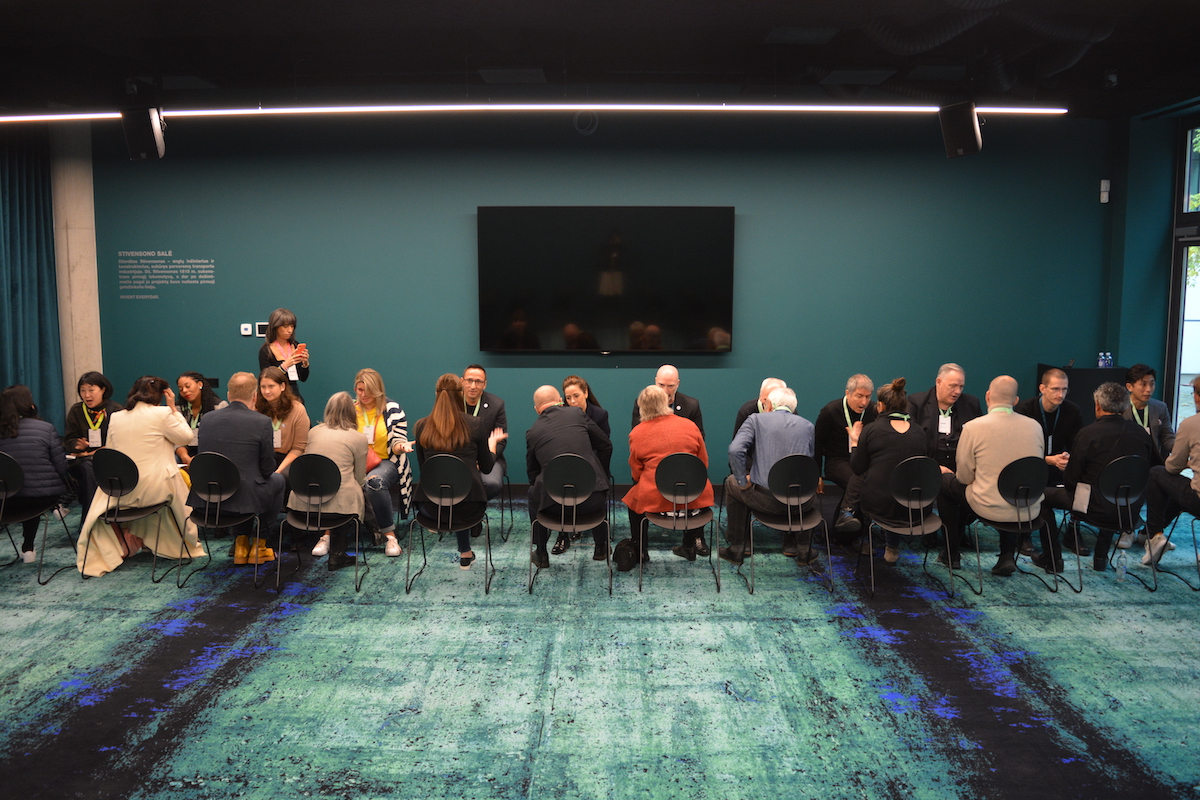 Platform participants during a speed-dating session
Platform participants during a speed-dating session
BIOGRAPHIES OF INVITED SPEAKERS
Philipp Pattberg is full professor of transnational environmental governance and policy at the Institute for Environmental Studies, VU Amsterdam, where he chairs the Environmental Policy Analysis Department. Philipp also directs the VU Amsterdam’s transdisciplinary and interfaculty research platform on sustainability, the Amsterdam Sustainability Institute (Amsterdam Sustainability Institute - Vrije Universiteit Amsterdam (vu.nl)). Philipp has published widely on questions of institutional change and transformation, effectiveness and accountability in environmental governance, and the increasing complexity of sustainability.
Dawn Lim is an experienced leader in business development and strategy, she stepped into the leadership role at DesignSingapore as Executive Director from 1 May. Prior to this, she helmed Singapore’s global leadership ambitions in Commercial & Professional Services at the Economic Development Board - Singapore’s lead economic agency. In this role, she engaged and attracted the world’s leading organisations in the consulting, accounting, marketing and advertising, as well as engineering services and logistics sectors. She has a proven track record of working across private and public sector partners to negotiate deals and deliver major strategic initiatives and investments.
Patrick Marmen is Chief of Staff and Design Commissioner of the Bureau du design of the City of Montréal. Formerly UNESCO Chair in Landscape and Environmental Design at Université de Montréal, he has worked on the development of design-driven research projects, including the YUL/MTL Moving Landscapes international ideas competition, as well as co-ordination of WAT_UNESCO international urban design workshops held in Brazil, China and France. Driven by the desire to share his enthusiasm for the city and its spatial planning, Patrick has been a lecturer at the Université de Montréal School of Urban Planning and Landscape Architecture, a member of the planning advisory committee of the Sud-Ouest borough, and Chair of the Ville de Montréal’s Comité Jacques-Viger. At the Bureau du design, he continues to work on development of design competitions, workshops and panels.
David Grossman is a Former President of ICoD. He has many decades of experience as a practicing designer, a design educator and a design community activist.
Lena Pianovska (Olena Pianovska) is currently a member of the Board of the Polish Association for Graphic Designers (STGU). Promoter of entrepreneurship in the environment of graphic designers. Initiator and coordinator of the STGU Mentoring Program. Running a series of virtual meetings /podcast for designers - STGU CatchUp. Member of the STGU Competition Team. Jury member of the local and international graphic and branding competitions. As a mentor, design lecturer at university, creative director and strategist she she tries to raise the profile of the design profession to a higher level of awareness both within the design community and beyond its borders.
Many thanks to ICoD Member, LDA, who hosted both the 2022 Platform Meeting and the 29 General Assembly! If you have any questions about ICoD Events, please contact out Events Manager, Liz Carbonell events@theicod.org.
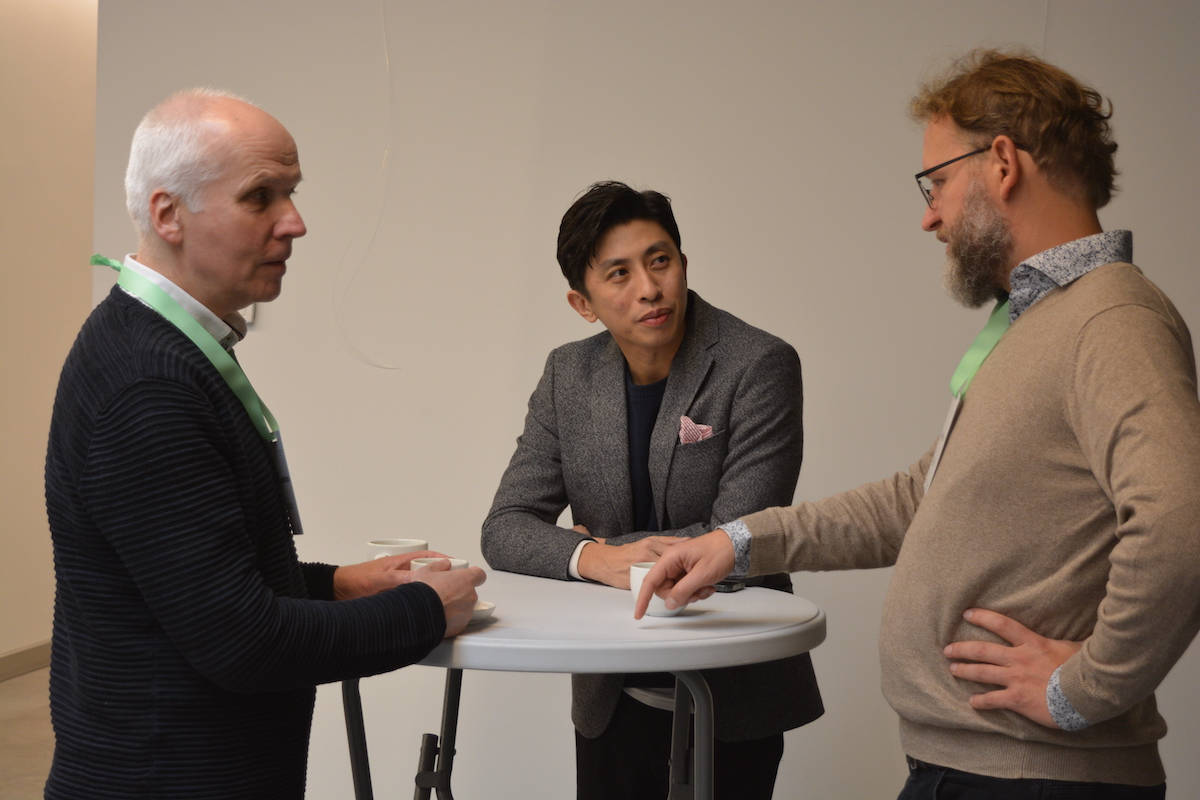
relatedarticles
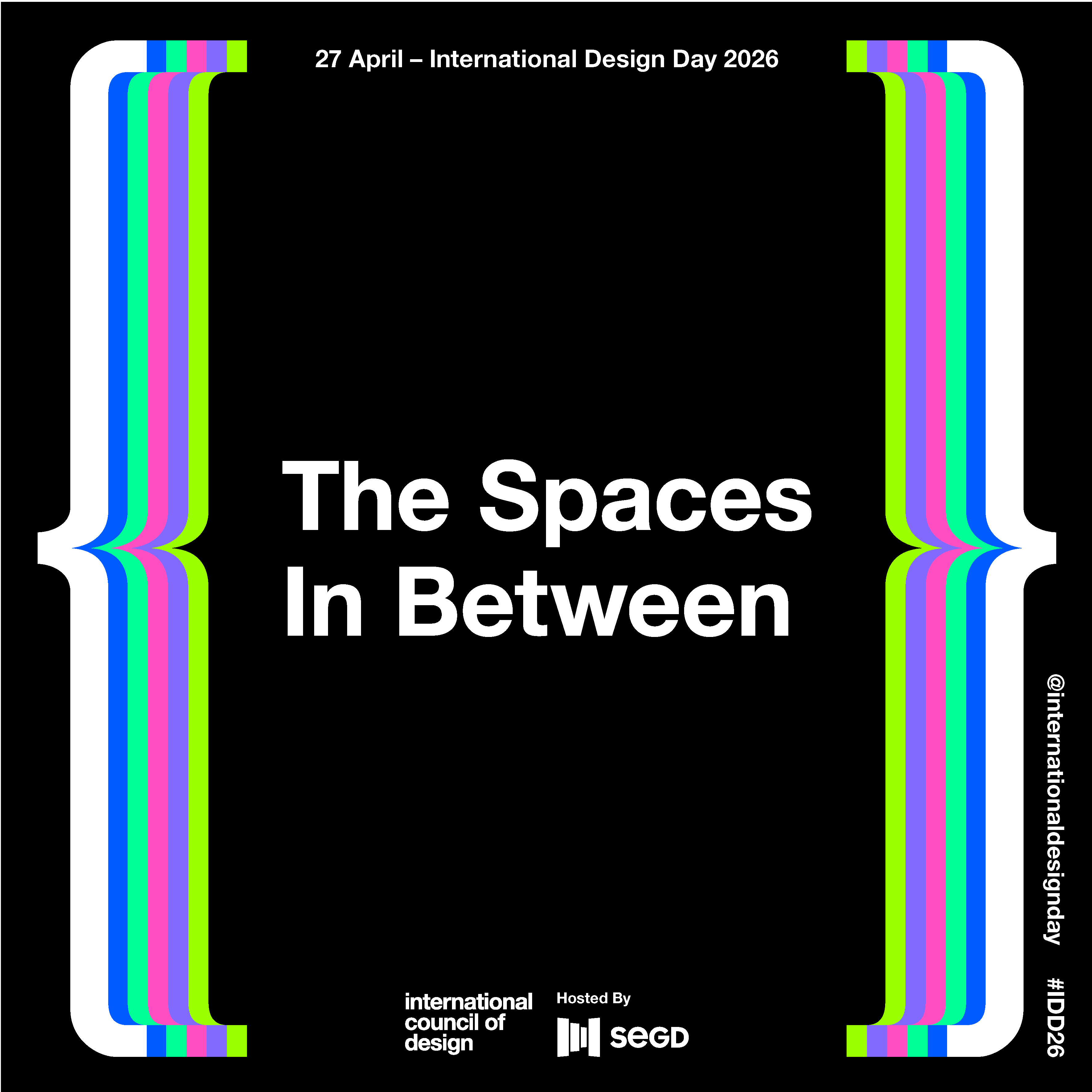
The Spaces In Between: ICoD Announces International Design Day 2026 Theme
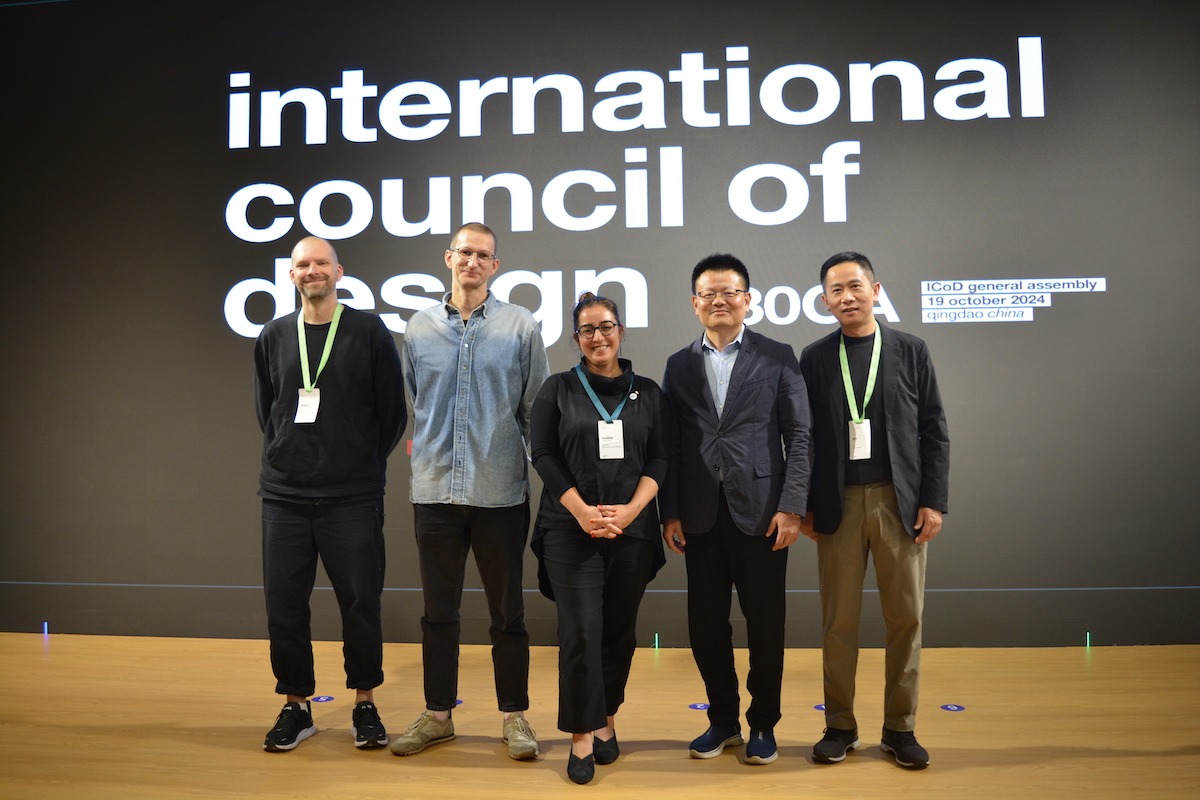
meet the 2024–2026 executive board
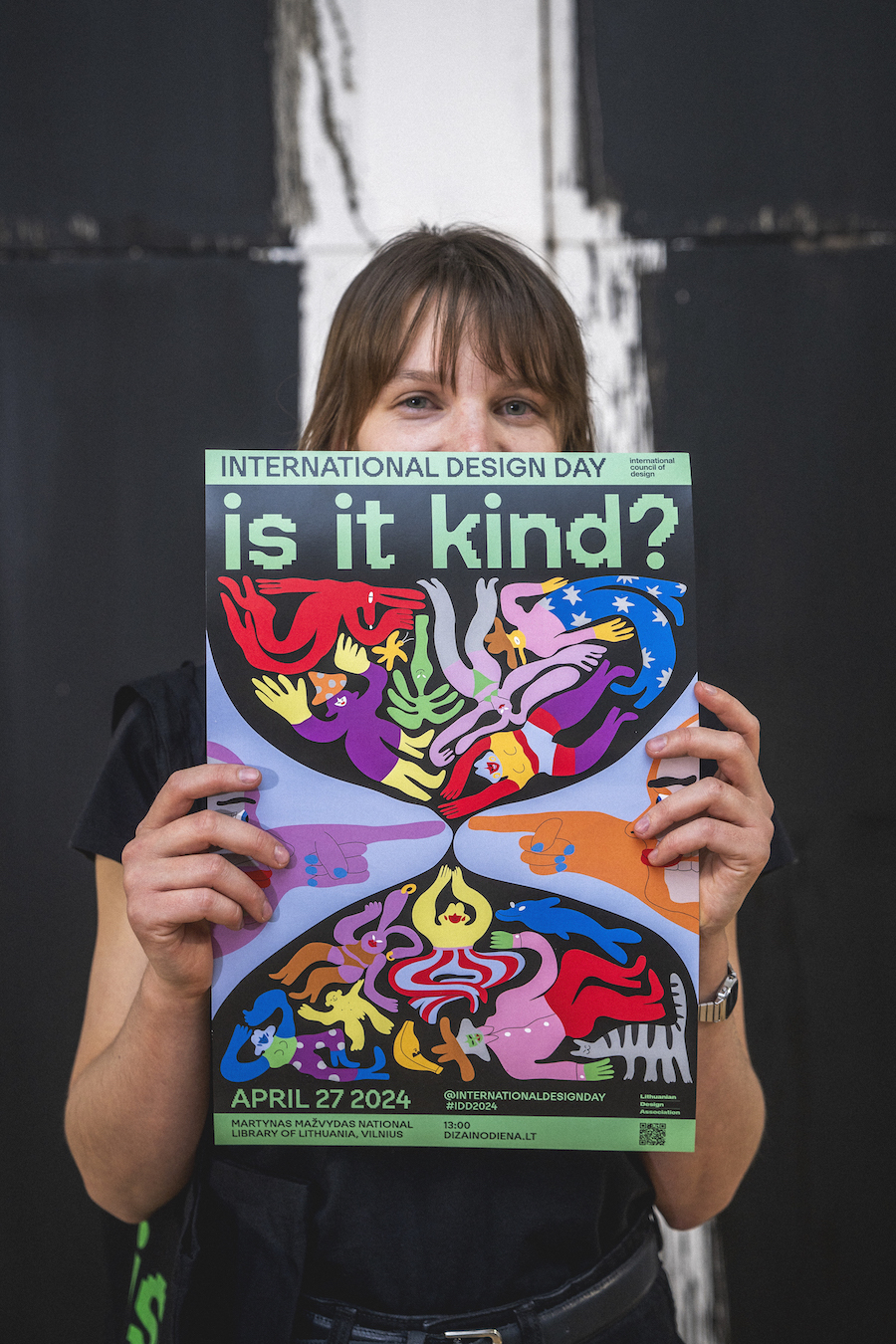
international design day 2024: is it kind? recap
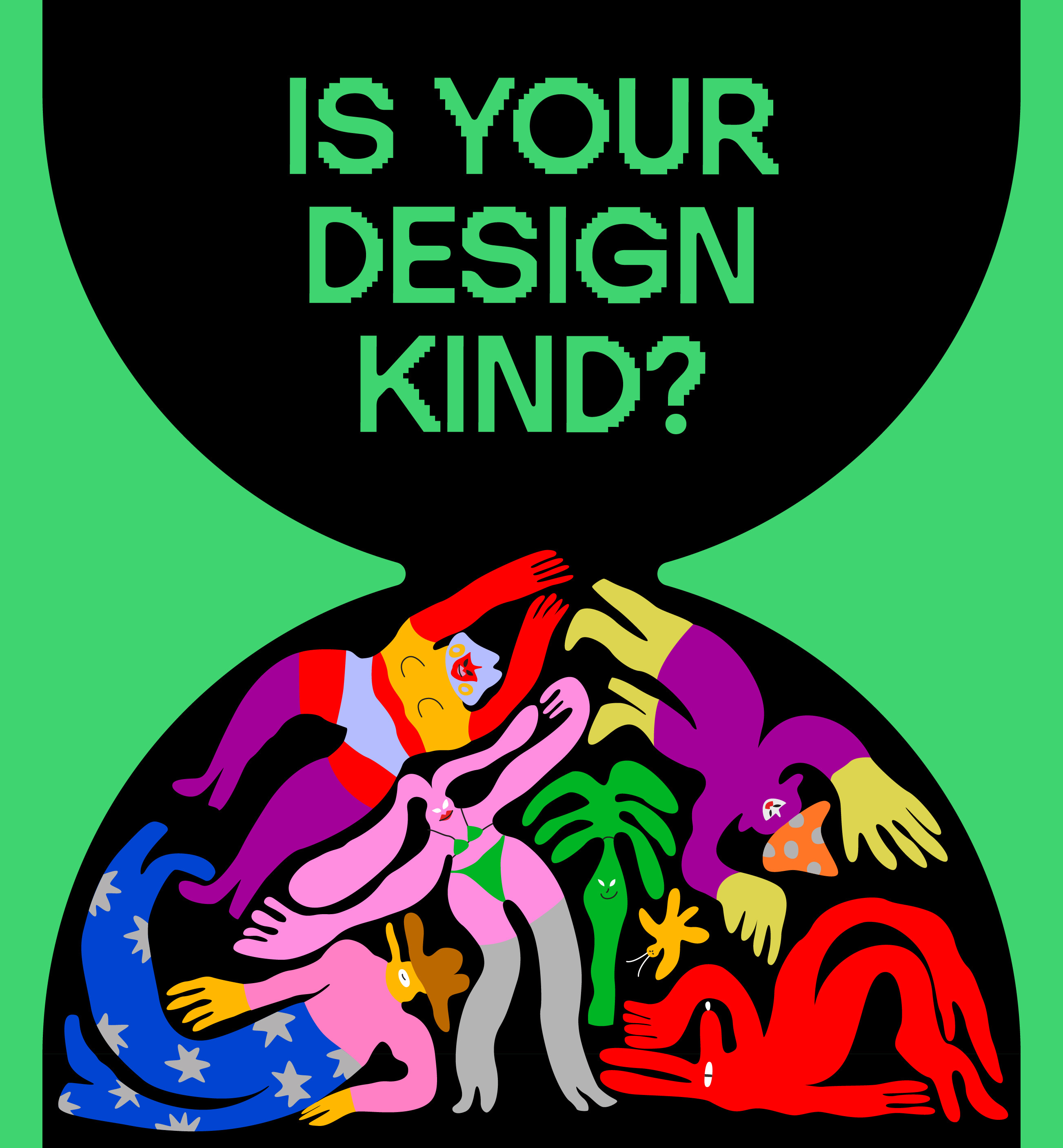
LDA forum + international design day 2024 conference
